Wednesdays with Bob: New book charts the life and times of larrikin former Prime Minister Bob Hawke
HE was a prolific lover and drinker, but long before she became Bob Hawke’s biographer and wife, Blanche d’Alpuget reveals she has always shared a strong attraction with the man who would become PM.

VIC News
Don't miss out on the headlines from VIC News. Followed categories will be added to My News.
FOR the past year on Wednesdays, author Derek Rielly and former PM Bob Hawke have caught up to talk life, death, love, sex and, of course, politics. Today, the Herald Sun runs an exclusive extract from his new biography Wednesdays with Bob, which also includes interviews with John Howard, Gareth Evans and Kim Beazley, wife Blanche d’Alpuget, stepson Louis Pratt, and friends.
IN the early summer of 1978, ACTU president Bob Hawke, who had just turned 49 years old and was married to Hazel Masterson, requested the hand in marriage of the award-winning writer Blanche d’Alpuget, 34 and married to Tony Pratt.
Inside an unlovely Canberra motel, the sort characteristic of the clandestine affair, Hawke leaned his head on the unplastered wall and said that he was unhappy at home, and had had a dream the night before that convinced him he should leave his wife.
The dream involved another lover — a gorgeous, rich Swiss blonde nicknamed Paradiso. And although Blanche was prone to jealousy when it came to Hawke’s affairs, the pair could talk openly about Paradiso because she lived in Europe.
Bob Hawke backs ‘Yes’ campaign in postal survey on gay marriage
Tributes for ‘wonderful Australian’ Hazel Hawke
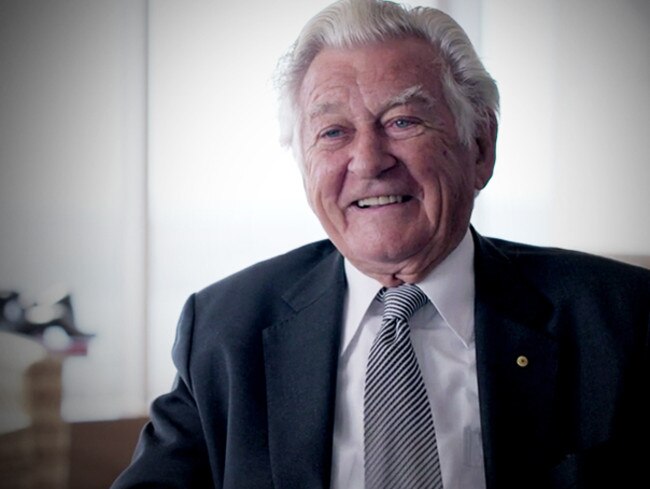
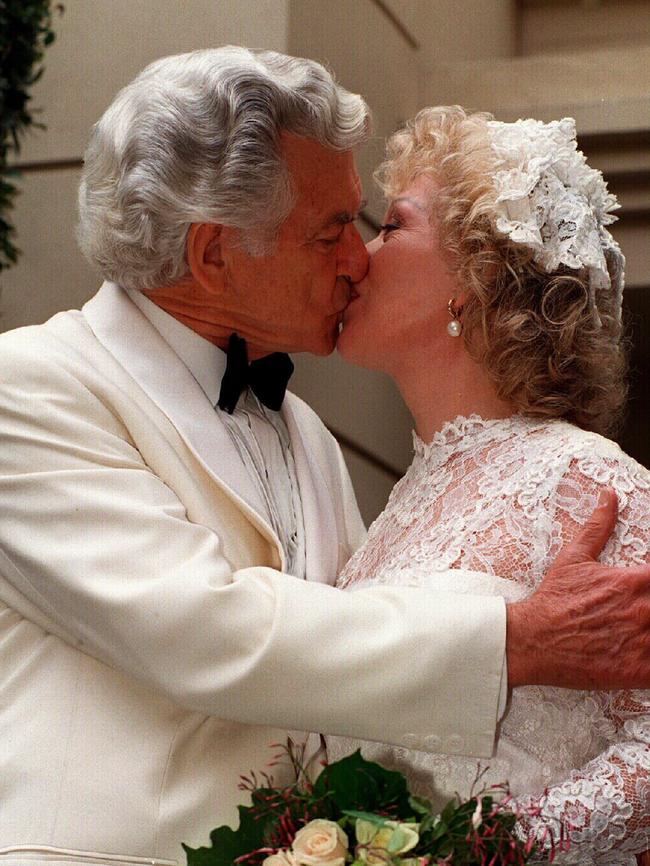
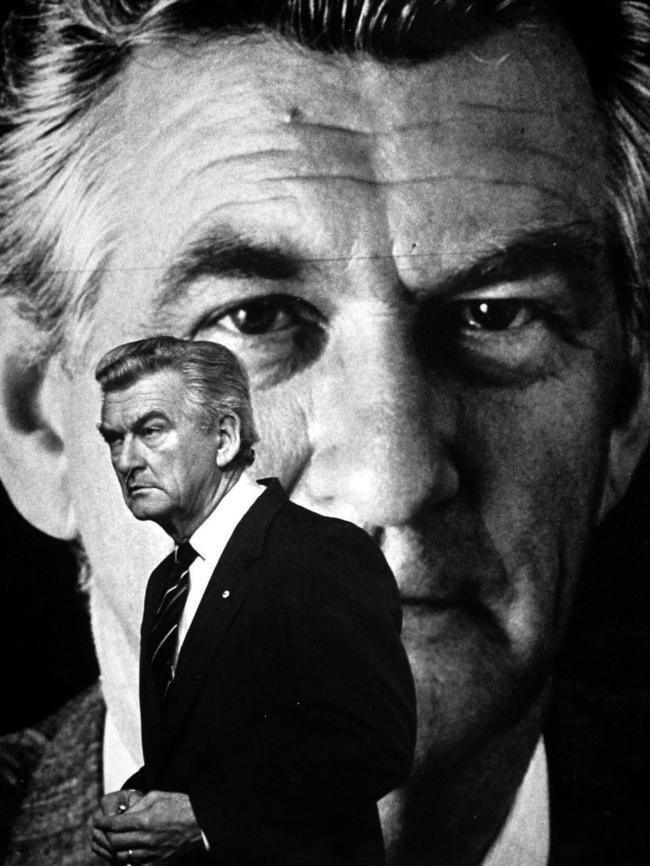
“Theirs was a very romantic relationship because she was married to this really rich and much older guy and Bob had the hots for her but didn’t think he’d get anywhere. And he invited her back to his hotel and suddenly she just put her arms around him,” says Blanche, who lunched with Paradiso two years later while in Europe researching Robert J. Hawke, the book that would help propel Hawke into the ALP leadership.
“We got on very well. She had a huge 17th-century house and invited me to stay next time I came to Switzerland. There was a strong sisterly feeling between us.”
In Hawke’s dream, the roulette wheel had spun and the ball landed on Blanche. It meant he had to marry her — whatever the cost.
“He realised that for both of us it was a huge step,” says Blanche. “(Her son) Louis was six and his (Hawke’s) kids were teenagers and already very troubled. Their parents’ bad marriage had made life very difficult for those children. But more than anything, being the children of a rock star ...”
Was tough?
“Terrible — terrible. You just can’t get away from being in the shadow of the giant.”
What were your feeling towards Hazel, then Hawke’s wife of 20 years? Did she enter your thoughts at all?
“I didn’t have any because he never talked about it, which I really appreciate. Neither of us ever talked about our spouses to each other. We would have both considered that dishonourable. I had no idea what she was like. She had no public profile.”
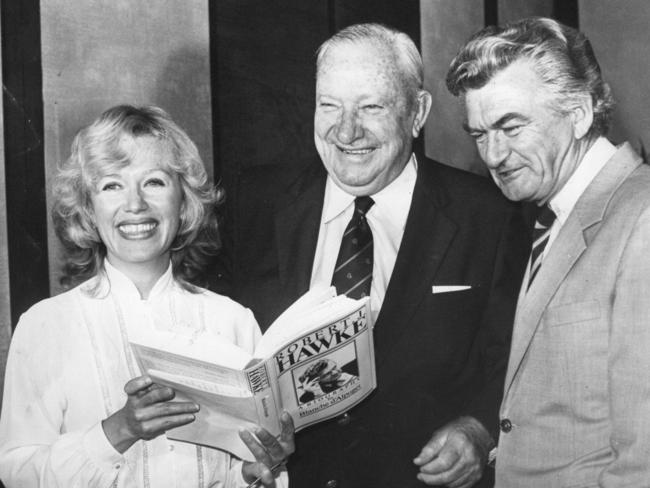
Blanche, whose own 11-year marriage was “cactus”, told Hawke she’d think about the offer over the two-month Christmas break, when family commitments meant pressing pause on the affair.
How did Hawke react when he offered Blanche the keys to his kingdom and everything within it and she said maybe?
“Well,” Blanche says — three decades older and still the most beautiful gal in most rooms — “Bob was so drunk that if it was put before a jury he would’ve got off. In the sober light of day he was probably relieved.”
The lovers met in 1970 at a party for expats in Jakarta, where Blanche was living with her first husband, Tony Pratt. The pair sat together in a swinging chair and spoke intently about trade unionism, geopolitics and the state of Indonesia while the party swirled around them.
Blanche’s immediate impression was of a man who was “physically nothing special” but “so clearly a man of very forceful courage and character. He made a great impression on me psychologically.
“He was interested in everything. I knew a lot and he was really interested in what I had to say.”
Afterwards, Blanche wrote a letter to her mother about a “fabulously exciting” man she’d just met called “Robin” Hawke, someone with this “great big energy field”.
Blanche points out that at this point she was “really” in love with her husband and that she wasn’t looking at other men. Still, this was the swinging ’70s, when the pill promised absolute freedom long before the death sentence guaranteed by AIDS.
Blanche writes, “I had had many lovers, had been in love often and had once cried over a man. I loved my husband, whom I’d met when I was 17, and felt fiercely loyal to him. In the decade that we journeyed together we had both taken side trips, but we were mindful of each other’s feelings, and discreet.”
But nothing happened with Hawke.
The following year, again in Jakarta, as another boozy party of expats raged with debate over the Vietnam War, Hawke found Blanche and announced (perhaps too loudly, given his 14-year-old daughter Sue was in earshot), “I’d like to make love to you.”
“He was very drunk,” says Blanche.
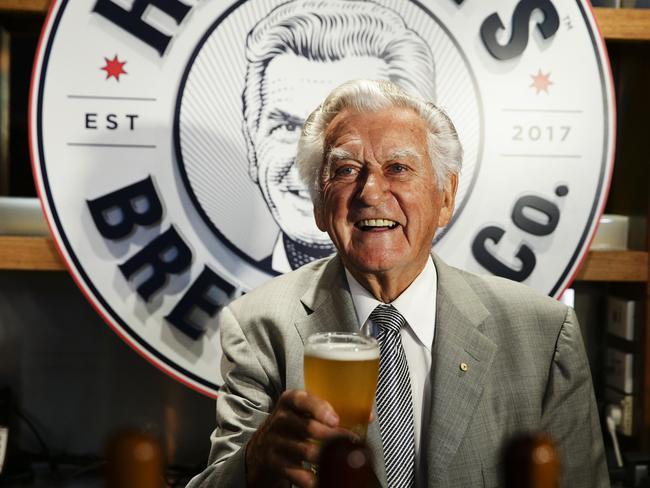
Four years passed before Blanche saw Hawke again. She was researching Mediator, her biography of Sir Richard Kirby, the longest-serving president of the Australian Commonwealth Conciliation and Arbitration Commission. Hawke, as advocate for the ACTU, had appeared innumerable times before Kirby, so she requested an interview.
“I was very nervous and very excited.”
The pair met in Melbourne, at Hawke’s ACTU office. At the conclusion of the first interview he invited Blanche to lunch at the pub next door where “with mutual, wordless consent it was agreed we would become lovers as soon as possible — which happened to be in a different city the following night”.
It wasn’t an all-nighter and Blanche, whose son Louis was four years old, regarded the liaison as one of her occasional side trips. Soon, though, the one-off turned into a semi-regular affair. They met every three weeks to a month, whenever they happened to be in the same city. In the interim, there were no phone calls, no contact.
“I knew he had a lot of interests,” says Blanche.
How did you know?
“Partly intuition, partly gossip. It built up bit by bit until, finally, the penny dropped. It’s not something that you particularly want to face about your lover. The evidence accumulated, so I had to accept it. I wasn’t going to let it carry me away until he got very serious, which was in ’78, so that was 18 months into the relationship.”
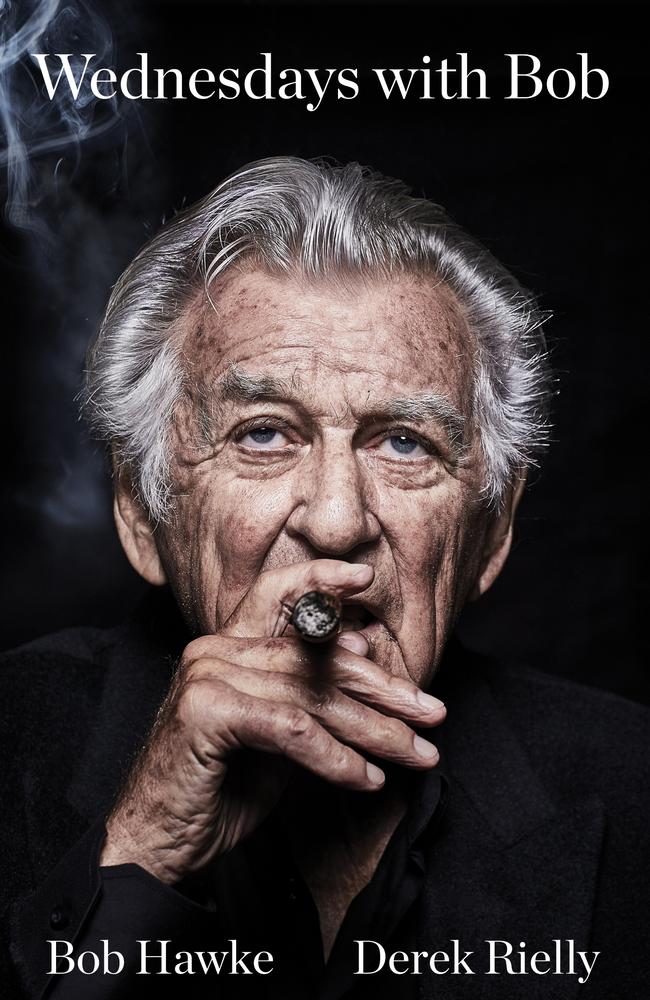
Were you consumed by thoughts of Hawke in bed with other gals?
“I didn’t ever imagine what he would be doing with them. I always had the intuition that of all the women I was his favourite. I had nothing to base that on other than intuition. And maybe wishful thinking.”
When did you tell your husband about Hawke?
“By 1978 I’d told him, and he was terribly angered, very, very angered and jealous.”
Your world changed when Hawke proposed.
“Yes, because it brought to the fore something that I’d been avoiding for a hell of a long time and that was the problems in my own marriage ... And I took advice from this very old friend of mine, a shrink, and with him worked out that it wasn’t that I wanted to go with Bob; I didn’t. I wanted to leave Tony.”
A year later, Hawke stopped calling. Eventually he rang and told you he wasn’t going to divorce Hazel. How did you respond?
“He’d been so conflicted his doctor had sent him for a brain scan to see if he had a brain tumour. But I was just shattered. None of this is logical ...” Blanche laughs.
“Because by then, even though I’d left my husband, I knew I didn’t want to be with (Bob) anyway. I wanted to stay in Canberra with Louis. But to know that he was jilting me ...”
A pause.
“I was suicidal.”
Briefly.
“Yes, it was brief. I decided to murder him instead. I thought that would be much more satisfying.”
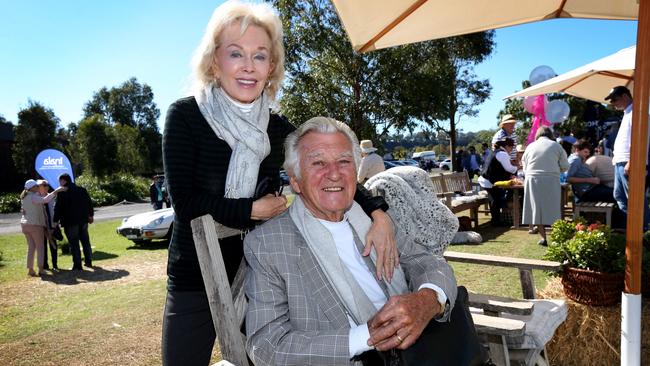
TWO years after the breakup and you’re back tapping on his office door for what would become your most significant work.
Did you really decide to write Robert J. Hawke because you felt the media representation of Hawke was cartoonish? Or was it because you longed to reconnect?
“Yes, and no, no, no. I didn’t long to reconnect. I was very, very interested in the trade unions, having done the Kirby book, and what they’d contributed to Australian society. And I first wanted to do the biography of Albert Monk, Bob’s predecessor (as ACTU president). His wife wouldn’t let me because she was wife No. 2 and she didn’t want people to know.
“And so it’s never been written. It’s a great pity because he kept copious notes, all in a very strange shorthand. But the trade unions formed a lot of the ethos, the values, of 20th century Australia.”
How did Hazel react when Bob told her you were writing his biography? How much did she know about the two of you?
“Well, I don’t know. But he persuaded her that she should talk to me, and she did.”
How were those conversations?
“Somewhat strained. And she was, very reasonably of course, extremely hostile towards me. But she saw it as something that she ought to do. She suspected I was only doing it for money. She actually said that to me. Which wasn’t the case. I was doing it out of the conviction that he was a very important force in the country and was not properly understood and presented.”
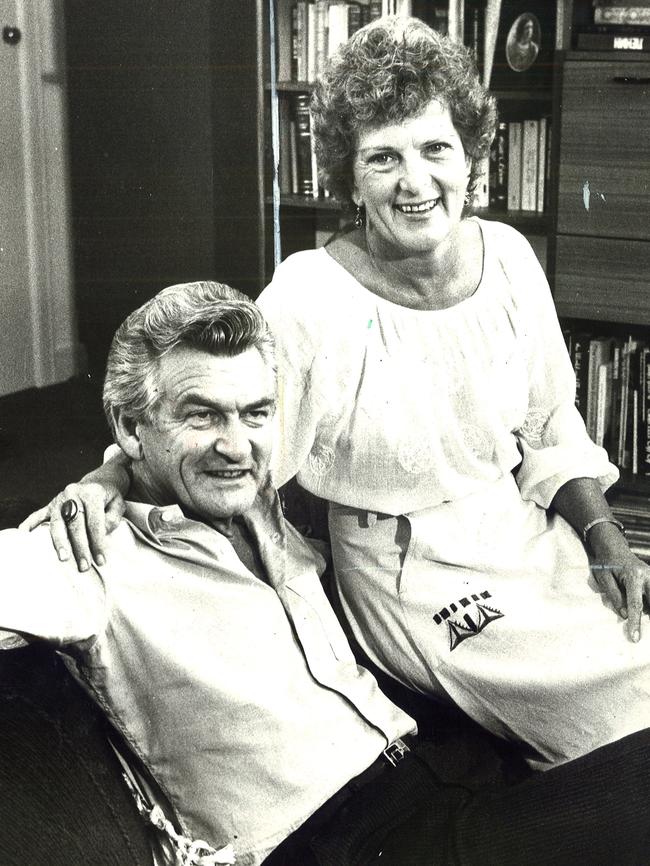
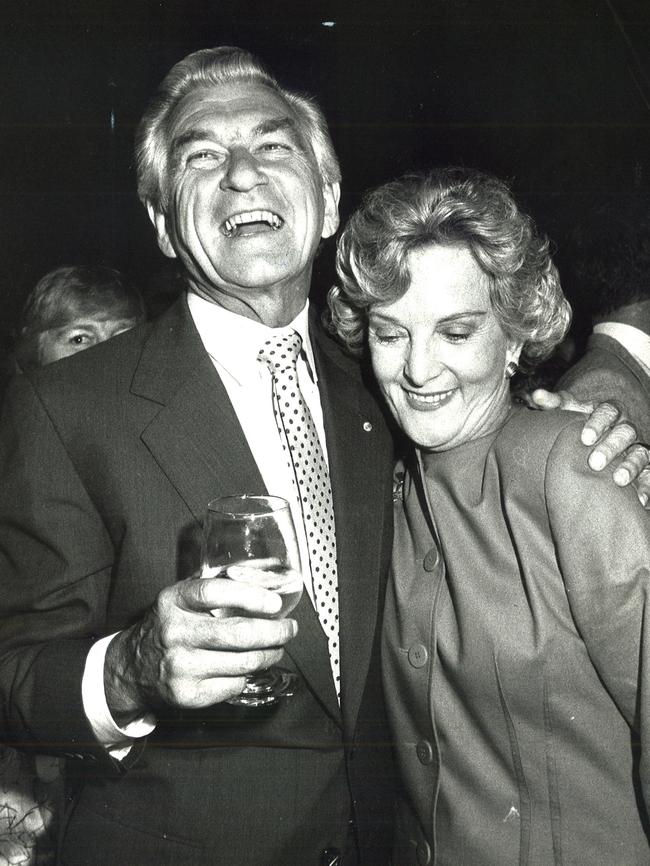
Then, in November 1988, Hawke called her and their love affair was rekindled.
“I was still very cautious,” says Blanche. “I’d been let down once. I wasn’t going to take it seriously. I wasn’t going to get into that same position of wanting to kill myself, kill him, howling for three days. And, I did have a couple of nice friends ...”
Her eyelids lower provocatively, her voice is like honey.
“Mmmm. Well, I was a free woman, I was divorced. But (with Hawke) it just intensified. It intensified. And a clandestine relationship when the secret service is involved is particularly exciting.”
Three years later, Blanche was “deep in the country” when Hawke lost his job to Paul Keating. Still, through their intermediary, Hawke got through.
“He was in a very bad way psychologically,” Blanche says. “For a long while. He was really, really cut up. Cut up by the party and cut up that he’d done so much for them and they’d turned around and stabbed him in the back. That’s what he felt.
“But he’d made the (Kirribilli) agreement with Paul and he could’ve just realised he had to keep it. Of course, Paul had been stalking him from the day Bob had got the leadership. Initially those strains were very well papered over and they really did make a good team.”
And there were moments of love.
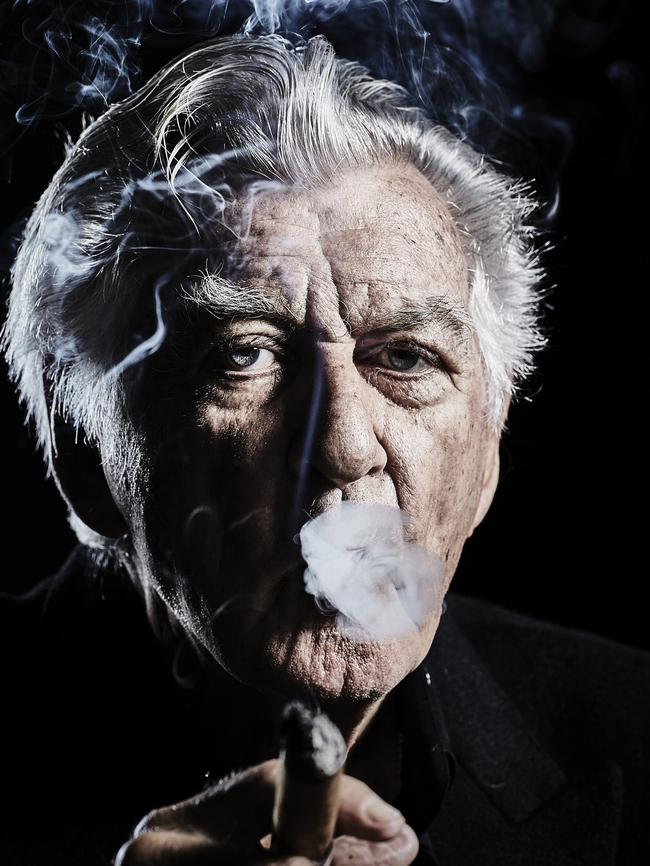
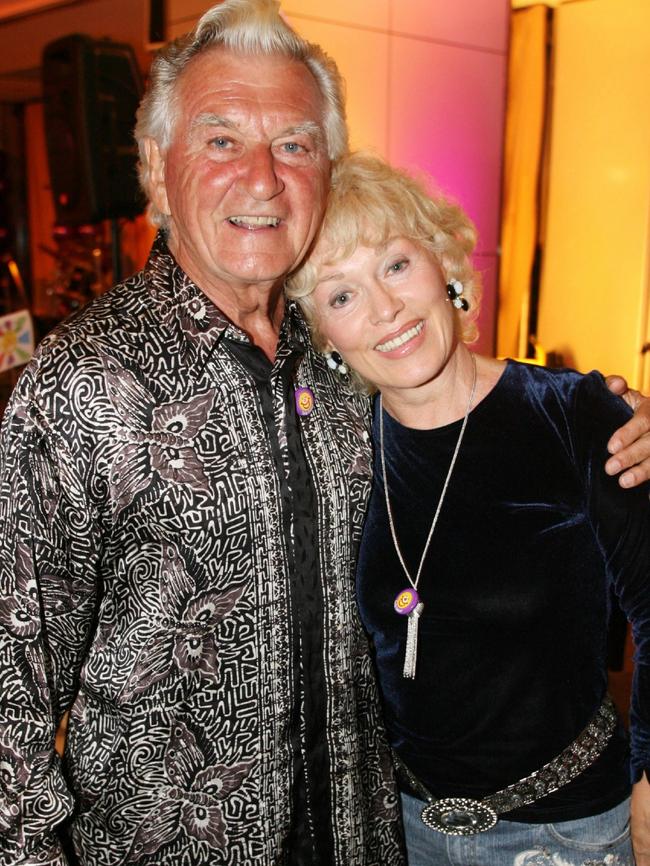
“Oh there were! Politicians are basically warlords at that level. I don’t think I’m being romantic when I say there was a warrior love between them, how men who fight side-by-side feel about each other. They had that brother-I’ve-got-your-back connection. And that was very strong, that male love.”
In 1994, six years into their reignited affair, Blanche — an ambassador for CARE Australia — flew to Pakistan’s North-West Frontier Province to write about the terrible deprivations of Afghanistan’s female refugees. She’d arranged to meet Hawke in Hong Kong on the way home.
On the day of departure from Afghanistan, Blanche’s flight from Peshawar to Karachi was cancelled, thereby creating a chain of missed connections. She arrived in Hong Kong a day late. Hawke was deeply suspicious of the delay.
“What’s wrong?” she asked.
“Nothing,” he lied.
Hawke had checked the flights and was told there were no cancellations. He was convinced Blanche had found a lover.
“Well, I was absolutely appalled that he didn’t believe me. I was truly appalled and I thought, Here we go again. So I said that’s it. Goodbye.
“He had rung the airline and the airline had said, ‘Oh no, sir, the plane took off’, and it was only through checking the story — I think he had to do it through the intelligence community — that he found out the truth, that the flight had been cancelled.
“And so then he was horrified (but) I was still adamant that I’d had enough and I wasn’t going to cop it any more.”
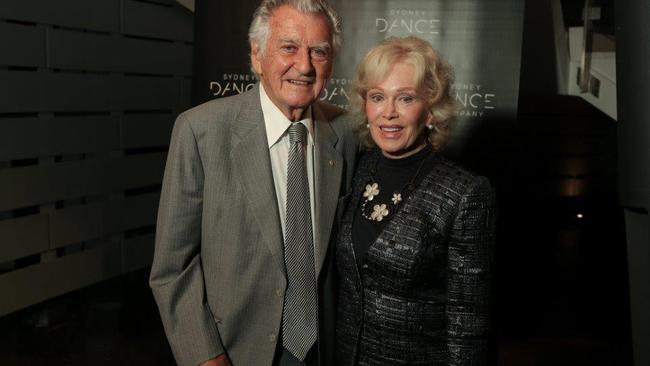
The pair’s intermediary invited Blanche to dinner and pleaded Hawke’s case. Told her Hawke was distraught, destroyed, that he couldn’t concentrate, that he couldn’t continue to live without her. Would she at least let him apologise?
Only over the phone, Blanche stipulated.
“And of course ...” Blanche erupts into laughter. “Foot in the door, isn’t it.”
And he was charming?
“Oh yeah. And full of remorse that he’d not believed me.”
And the following year you were married.
“July ’95.”
And not long afterwards, you left Hawke when he started drinking again.
“We were living in Northbridge and he got very drunk, got very angry,” says Blanche. “He could be very snide and abusive, but was never ever — to me or anybody else — physical. And I’d said to him straight up: I can’t cope with your drinking. Because he started drinking heavily again.
“As I said, he actually is an alcoholic. He will never say he is, because he successfully gave it up. These days he can keep his drinking down to an absolute minimum. But I think that
comes with age. Anyway, I went to a friend’s place and he didn’t know which one.”
After the years of abstinence during his political career, was it ’92 when Hawke got a taste for booze again?
“Yes, it was Hazel’s birthday. They were living in the RitzCarlton (in Sydney’s Double Bay) and this vile Italian restaurateur had said, ‘It’s Hazel’s birthday. There must be champagne.’ Bob was gone. I was appalled, because he came to see me a couple of days later and he smelled of grog and he was stupid and I thought, I don’t want this.”
And after you left he squashed it down to one drink a day?
“Oh no. No, no, no. Look, it’s terribly hard for alcoholics to drink in moderation. They have an on button but no off button. No, there were many more times when he would drink too much and I would shout at him and so forth. It was the only thing we ever argued about. And the kids, sometimes. His kids.”
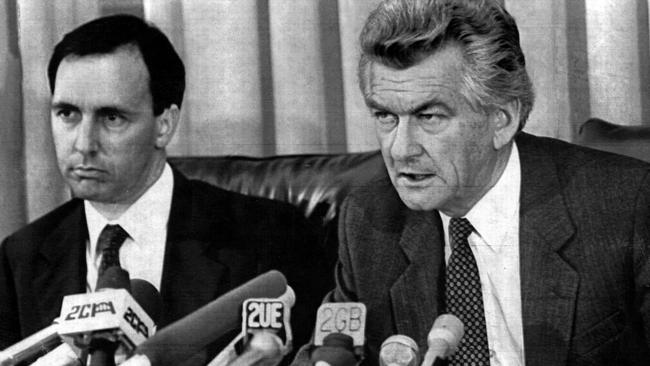
You famously slapped his eldest daughter Sue in the Qantas Club in 2011. Yet in the ABC’s Australian Story episode on Hawke you appeared to be terrific pals. Was it all a confection for the cameras?
“It was partly a confection. The first thing to say is that I love Sue, and the feeling is mutual. But she’s feisty, and we do argue. I thought she’d behaved appallingly towards me.
She had stuff in women’s magazines about how I’d written Hazel out of history and so forth, and I was really furious with her. I was sitting, minding my own business in the Qantas Chairman’s Lounge, when out of the blue she squatted down beside me and, all smiles, started to chat, as if we were the best of buddies. I thought, I could wring your neck.
“I warned her, ‘I’m not speaking to you. Go away.’ She was astonished but kept talking. I said a second time, ‘Go away.’ She wouldn’t and seemed annoyed that I refused to speak to her.”
And then, slap, slap, slap, slap. Four times?
“Just two, front hand, backhand. She said, ‘How dare you do that?’ and I replied, ‘Would you like me to do it again?’ She turned to a group of six men who were sitting behind her
to ask, ‘Did you all see that?’ They buried their heads in their newspapers and became deaf.
“Bob was horrified when I told him. ‘You didn’t. You didn’t,’ he said, holding his head. It was very bad form on my part. Of course I apologised to Sue later, and our affection for each other was, if anything, heightened.”
A salvo of satisfied laughter.
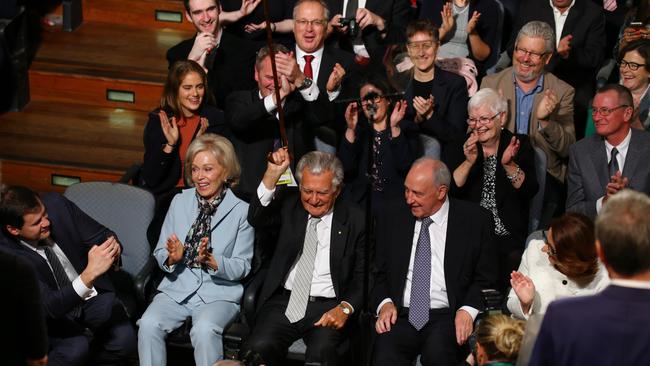
“I do have a temper,” says Blanche, “and the contretemps was a storm in a teacup. But the barometric pressure for such storms comes from a deep seam of suffering in our culture that leads people to believe life is a zero-sum game. ‘You win. I lose.’
“The Hawke divorce was pitch-perfect for this attitude, but really it was a win-win-win. Obviously, for Bob and me, but also for Hazel. She was liberated to be her own woman for the first time since her 20s.
“She escaped an ugly, dead marriage. She loved the view from the Northbridge house, but the rest of it was not so much to her taste. In moving to Castlecrag she got a house she loved and, as importantly, a garden she loved.
“She was always a mad keen gardener, but the Northbridge garden is a rainforest, a joy for fruit bats, possums and mountain goats. Not for human recreation.
“When I say it was win-win-win, I don’t mean it was painless. For the three of us, there was plenty of pain. I thought of Hazel often ... It sounds so corny, but it’s true: I felt her pain.
“I should add, she herself said repeatedly she did not want to be seen as a martyr. She rejected the label as offensive ... And life has pain, along with joy. Hazel had the joy of being wife of the Great Man.”
Tell me about killing Bob if he were ever to “lose his marbles”. What’s your arrangement?
(Hawke says earlier in the book that he and Blanche have an arrangement: “If I was to lose my marbles ... then something is done about it.”)
“None,” says Blanche flatly. “I said to him, ‘Listen, unless euthanasia is legalised I’m not going to jail as a murderess’.”
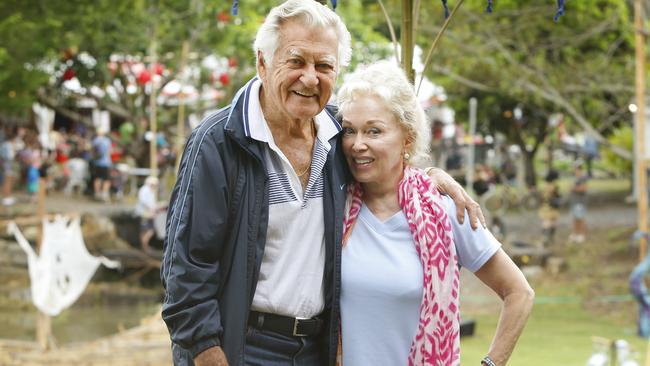
Do you talk to him, coach him, in any spiritual training for the day of death?
“We talk about it from time to time, and I remember years ago he said to me, ‘I’m going to be no trouble. I’ll be like my dad. I’ll go easily.’ I hope that’s true.
“And the great thing is, since you started interviewing him, the nerves in his feet are growing back. It’s a slow process but he’s walking so much better than he was before. He’s standing up straighter, his whole body is ... returning.’
Do you ever imagine life without him? “I’d be stupid if I didn’t. I’d be unrealistic if I didn’t.”
Allow me a final question, perhaps the most important question of all. What’s the secret to taming a great and prolific lover like Hawke?
“Love.”
Long pause.
“Truly, it’s love.”
— This is an edited extract from Wednesdays with Bob, by Derek Rielly (Pan Macmillan Australia), RRP $29.99, in stores November 28.
panmacmillan.com.au/9781760554262/
READER OFFER
Buy Wednesdays with Bob, by Derek Rielly, for the special reader price of $27.95. Order at heraldsun.com.au/shop or post a cheque/money order to Herald Sun Shop, PO Box 14730, Melbourne, VIC, 8001.


